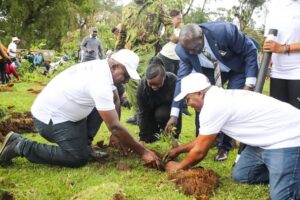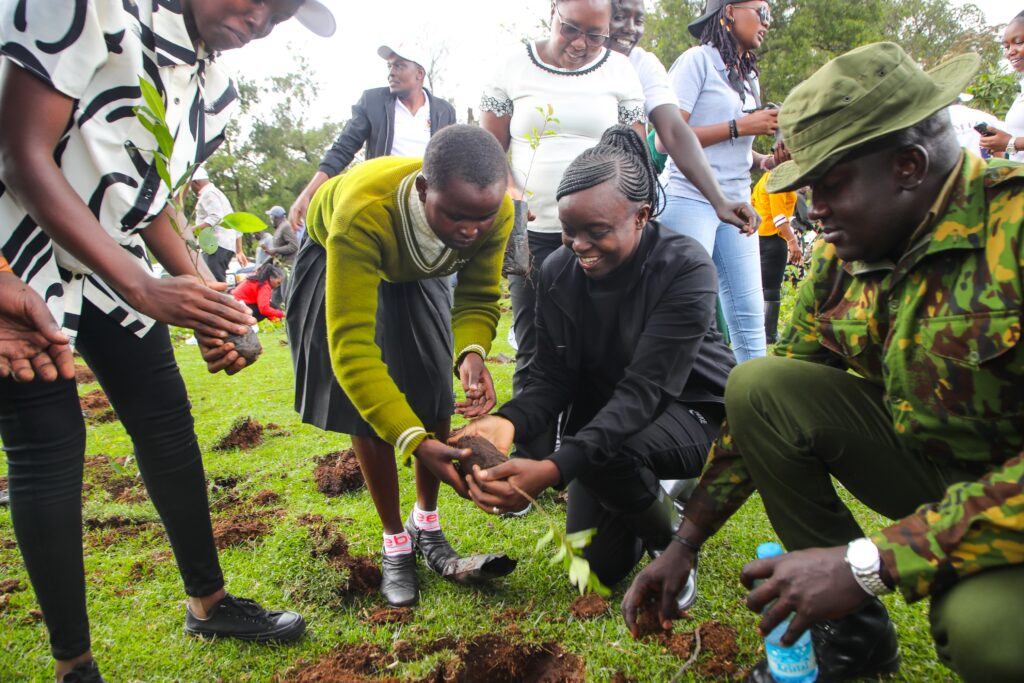By Nicholas Wamalwa
Today marks a profound turning point in the nation’s environmental consciousness, as Kenya occupies the cusp of an unparalleled arboreal endeavour. On Mazingira Day 2025, this singular event is poised to etch itself into the annals of history, with an ambitious mission to see more than seventy million trees take root in a single, coordinated flourish. The scale is staggering and no less than a bold testament to a collective will to reclaim and restore the natural heritage of Kenya.
The heart of this monumental extra-ministerial undertaking is happening not in ministerial offices or corporate boardrooms, but within the compounds of every primary school across the country. It is here, in the hands of numerous eager young pupils, that the future of Kenya’s landscape is being tenderly redesigned.
Today, the familiar routines of arithmetic and grammar are set aside for a different kind of lesson that inculcates a sense of custodianship, patience, and hope. Each child, armed with a seedling and a simple instruction, becomes a guardian of the future, a participant in a national ritual of renewal. The air will be thick with the rich scent of freshly turned earth and the bright, earnest chatter of a generation tasked with a glorious burden.
This is no mere symbolic gesture but a grand logistical orchestration aimed at delivering seventy million seedlings to countless schools, from the bustling urban centres to the most remote rural outposts. It is a feat of monumental planning and national resolve. The choice of species, carefully considered for their regional suitability and ecological benefits, speaks to a mature, scientifically-grounded approach to reforestation. It is a conscious effort to rebuild ecosystems, to combat the insidious creep of desertification, and to secure the vital water towers that are the lifeblood of the nation. And better yet to grow fruits nit just trees!
The spirit of the late Nobel Laureate, Professor Wangari Maathai, and her formidable Green Belt Movement undoubtedly whispers through the leaves of this new initiative. She proved that the simple act of planting a tree is a radical act of faith and a defiant stand against environmental degradation.

Environment CS Deborah Barasa at a recent tree planting exercise. Photo Courtesy/File
Mazingira Day seizes that legacy and amplifies it to a deafening, national crescendo. It is a powerful declaration that the challenges of climate change and deforestation are not abstract concepts for distant conferences, but tangible foes to be met with collective, grassroots action.
As the sun sets this evening, Kenya will have made a bold statement. It will be a land newly adorned with seventy million promises. These tender green shoots, vulnerable today, represent a living, breathing investment.
They are a covenant with the future and a pledge that the children of today will one day walk in the shade of forests they themselves helped to create. This is not just about planting trees. It is more about planting a new national character and one defined by foresight, unity, and a profound reverence for the mazingira—the environment—that sustains us all.
Today, Kenya will sow history into its very earth.
Wamalwa is an enthusiast of communication for environmental wellbeing



